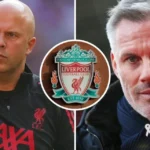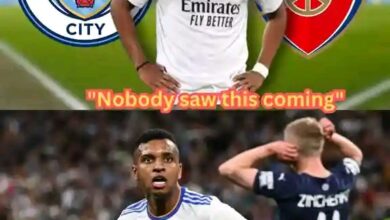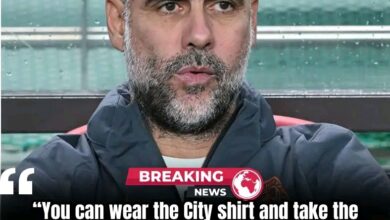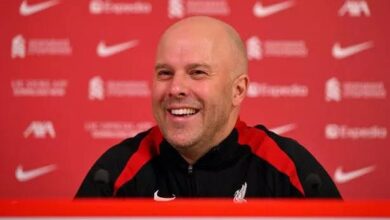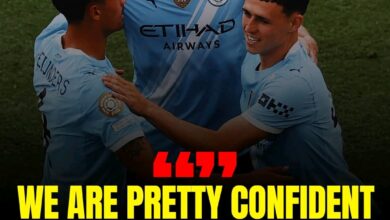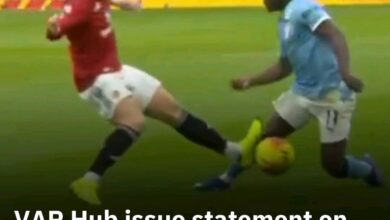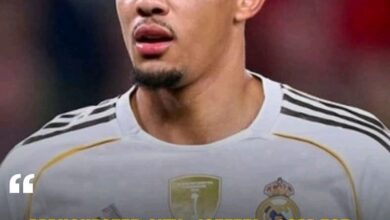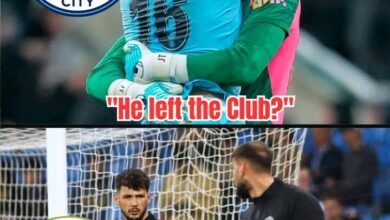Liverpool’s Contract Dilemma: Five Key Players Set to Become Free Agents in 202
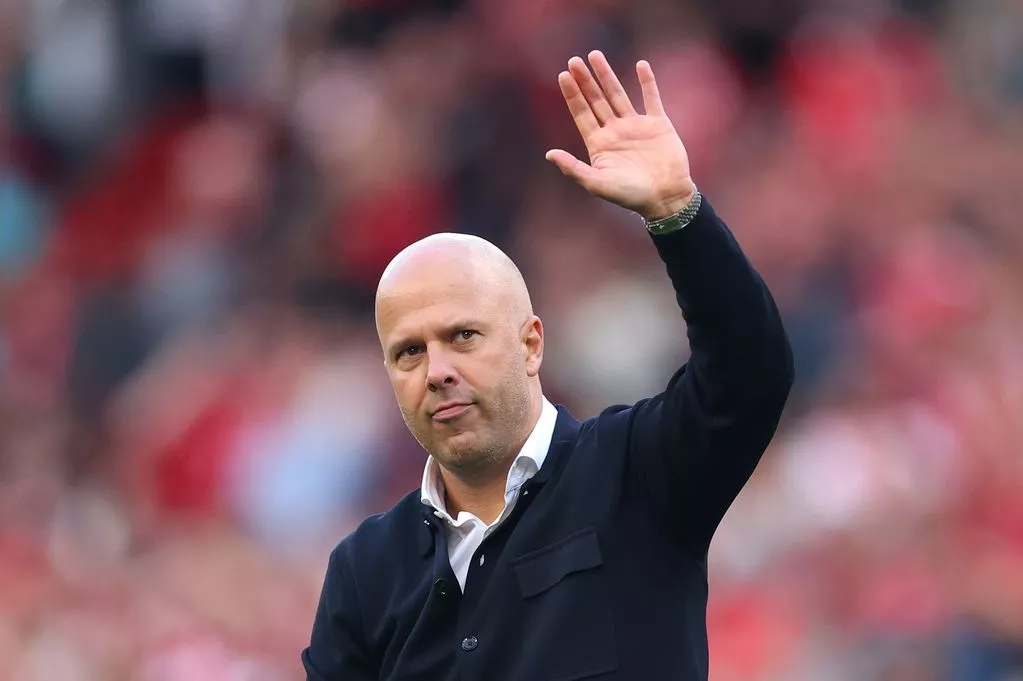
Liverpool Football Club finds itself at a fascinating crossroads. After what can only be described as a revolutionary summer transfer window in 2025, manager Arne Slot and the Anfield hierarchy are already casting their gaze toward the challenges that await them in the not-so-distant future. The club’s recent transfer activity, which saw an unprecedented £400 million investment in new talent, has reshaped the squad dramatically, but it has also highlighted a looming contract crisis that could define the next phase of Liverpool’s evolution.
The summer of 2025 will be remembered as one of the most transformative periods in Liverpool’s recent history. The arrival of Alexander Isak, Florian Wirtz, and Hugo Ekitike represented statement signings that signaled the club’s ambition to compete at the highest level. However, this remarkable investment came at a cost, with the departure of established stars like Luis Díaz, Darwin Núñez, and notably, Trent Alexander-Arnold, generating approximately £250 million in sales to help fund the massive expenditure.
While the current squad appears well-equipped for the challenges ahead, Liverpool’s planning department is already turning its attention to a more pressing concern: the contract situations of several key players whose deals are set to expire in 2026. This impending deadline presents both challenges and opportunities for the club, as they must navigate delicate negotiations while maintaining squad stability and competitive edge.
At the heart of Liverpool’s contract conundrum stands Andrew Robertson, the Scottish left-back who has been instrumental in the club’s success over recent years. Robertson’s situation epitomizes the complex decisions facing Liverpool’s hierarchy, as they must balance loyalty to long-serving players with the evolving demands of modern football.
Robertson’s journey at Anfield has been nothing short of remarkable. Since arriving from Hull City in 2017, the defender has established himself as one of the Premier League’s finest full-backs, contributing significantly to Liverpool’s Champions League triumph in 2019 and their long-awaited Premier League title in 2020. His tireless running, pinpoint crosses, and defensive reliability have made him an indispensable part of Jürgen Klopp’s legacy and now Arne Slot’s new era.
However, the landscape around Robertson has shifted considerably. The summer departure of Trent Alexander-Arnold created significant changes in Liverpool’s defensive structure, while the arrival of Milos Kerkez initially raised questions about Robertson’s future role. Atlético Madrid’s interest in the Scottish international further complicated matters, suggesting that other top European clubs recognize his continued value despite his advancing years.
Arne Slot’s decision to install Robertson as vice-captain speaks volumes about the Dutch manager’s faith in the defender’s leadership qualities and on-field contributions. This appointment was not made lightly; it reflects Slot’s recognition of Robertson’s importance to Liverpool’s culture and his ability to bridge the gap between the club’s illustrious past and its ambitious future.
The manager’s comments about Robertson reveal the depth of consideration behind this decision. Slot emphasized not only Robertson’s playing ability but also his crucial role in maintaining the club’s culture and dressing room harmony. This cultural aspect cannot be overstated – Robertson has been through Liverpool’s most successful period in decades and understands what it takes to achieve at the highest level.
The departure of Kostas Tsimikas on loan to Roma further underlines Slot’s commitment to Robertson as his primary left-back option. This move suggests that, at least for the current season, Robertson remains central to Liverpool’s plans. However, the question remains whether this faith will translate into a contract extension that keeps the Scotsman at Anfield beyond 2026.
From a tactical perspective, Robertson’s role under Slot may evolve from his traditional attacking full-back position. The Dutch manager’s system requires different attributes from his full-backs, potentially offering Robertson an opportunity to reinvent his game and extend his career at the top level. His experience and tactical intelligence could prove invaluable as Liverpool adapts to new tactical demands.
The financial implications of Robertson’s contract situation are equally complex. At 31, offering a long-term deal represents a significant commitment to a player entering the latter stages of his career. However, his leadership qualities, experience, and proven ability to perform in high-pressure situations make a compelling case for retention.
Perhaps even more pressing than Robertson’s situation is the contract status of Ibrahima Konaté, the French center-back whose importance to Liverpool’s defensive structure has grown exponentially since his arrival from RB Leipzig. Konaté’s potential departure would represent a significant blow to Liverpool’s defensive capabilities and long-term planning.
Since joining Liverpool, Konaté has demonstrated the perfect blend of pace, power, and technical ability that modern center-backs require. His partnership with Virgil van Dijk has provided Liverpool with defensive stability, while his ability to play out from the back aligns perfectly with contemporary tactical demands. The Frenchman’s aerial prowess and recovery pace have made him an invaluable asset in Liverpool’s high defensive line.
The specter of Real Madrid’s interest adds another dimension to Konaté’s contract situation. The Spanish giants have a well-documented history of attracting top talent, particularly French players, and their interest in Konaté reflects his standing among Europe’s elite defenders. The prospect of playing for Real Madrid, with their rich history and continued success in the Champions League, would appeal to any ambitious player.
For Liverpool, losing Konaté on a free transfer would represent poor business and a significant setback to their defensive plans. The center-back market has become increasingly expensive, and replacing a player of Konaté’s quality would likely require a substantial investment. Moreover, his age profile – still in his mid-twenties – means he should be entering his prime years, making his potential departure even more concerning.
The timing of Konaté’s contract situation is particularly challenging given Liverpool’s recent defensive investments and departures. The club has restructured significantly, and losing a key defensive player would disrupt carefully laid plans. His understanding of Slot’s tactical system and his chemistry with van Dijk make him incredibly valuable to Liverpool’s current setup.
Konaté’s decision will likely hinge on several factors: Liverpool’s continued competitiveness in domestic and European competitions, the club’s willingness to offer competitive wages, and his personal ambitions. Real Madrid’s interest suggests he has options, but Liverpool’s project under Slot and their recent investment in the squad demonstrate serious ambition.
The French international’s injury history, while not severe, does add another consideration to contract negotiations. Both Liverpool and Konaté will want assurances about his long-term fitness and the club’s medical support. His successful recovery from previous injuries and strong performance levels suggest these concerns are manageable.
Among Liverpool’s contract priorities, perhaps none is more crucial than securing the long-term future of Rio Ngumoha, the teenage sensation whose meteoric rise has captured the imagination of fans and pundits alike. At just 17, Ngumoha represents the type of talent that clubs build their futures around, making his contract situation a priority despite his age.
Ngumoha’s breakthrough moment came with his dramatic late winner against Newcastle United in August, a goal that announced his arrival on the senior stage in spectacular fashion. However, his impressive performances during pre-season had already marked him as a player to watch, demonstrating maturity and technical ability beyond his years.
The transition from scholarship to professional terms represents a crucial juncture in any young player’s career, but for Ngumoha, this moment comes with added significance given his rapid progression. Liverpool’s academy has produced numerous talented players over the years, but few have made such an immediate impact at senior level while still in their teens.
Liverpool’s approach to Ngumoha’s development reflects modern football’s evolution in handling young talent. The club recognizes that exceptional talents require exceptional handling, and Ngumoha’s integration into the first-team environment demonstrates their confidence in his potential. His performances suggest he possesses not just technical ability, but also the mental strength required to succeed at the highest level.
The financial aspects of Ngumoha’s situation are complex but manageable for a club of Liverpool’s resources. While his initial professional contract is unlikely to break the bank, the long-term implications are significant. Securing his commitment now could prove incredibly valuable if he continues his upward trajectory, while offering him appropriate terms reflects the club’s commitment to nurturing young talent.
From a strategic perspective, Ngumoha represents everything Liverpool hopes to achieve with their academy system. His emergence provides validation for the club’s youth development philosophy and offers hope for future cost-effective squad building. In an era where transfer fees continue to escalate, developing homegrown talent becomes increasingly valuable.
The teenager’s position in Liverpool’s squad hierarchy will be crucial to his decision-making process. Regular first-team opportunities, appropriate development pathways, and the chance to learn from established stars will all factor into his considerations. Liverpool’s recent track record with young players, including successful integrations and pathway creation, works in their favor.
Rhys Williams presents perhaps the most straightforward of Liverpool’s contract decisions, though it remains emblematic of the broader challenges facing academy products at top-level clubs. The center-back’s journey from promising academy graduate to peripheral squad member illustrates the harsh realities of professional football and the difficulty of establishing oneself at elite clubs.
Williams’ breakthrough during the 2020/21 season came during exceptional circumstances, with Liverpool’s defensive crisis providing opportunities that might not have otherwise materialized. His performances during that period were commendable, showing composure and ability that suggested a bright future at Anfield. However, the return of established defenders and Liverpool’s subsequent recruitment has limited his opportunities significantly.
The five loan spells since his breakthrough tell the story of a player seeking regular football while Liverpool evaluates his long-term potential. His most recent stint with Morecambe in League Two represents a step down from previous loans, potentially indicating a reassessment of his level and future prospects. These loan experiences, while valuable for his development, also highlight the gap between his current standard and Liverpool’s requirements.
For Liverpool, Williams’ situation represents a familiar dilemma: how to handle academy graduates who show promise but may not reach the standards required for regular first-team football. His contract expiration provides a natural exit point, allowing both parties to pursue opportunities better suited to their respective needs without acrimony or significant financial implications.
The defender’s age and experience level mean that a permanent move away from Liverpool might benefit his career prospects. At this stage of his development, regular football at an appropriate level could be more valuable than remaining on Liverpool’s periphery. Several clubs in the Championship and League One would likely welcome a player with his pedigree and potential.
Williams’ situation also reflects broader questions about Liverpool’s academy pathway and the realistic expectations for homegrown talent. While the club has successfully integrated several academy products in recent years, not every promising young player will make the grade at the highest level. This reality doesn’t diminish Williams’ achievements or potential; it simply reflects the competitive nature of modern football.
Freddie Woodman’s inclusion among Liverpool’s contract considerations might seem peripheral given his recent arrival and backup role, but his situation reflects the club’s broader squad planning and goalkeeping philosophy. The former England youth international’s one-year deal with an optional extension provides Liverpool with flexibility while offering Woodman an opportunity to establish himself at a higher level.
Woodman’s arrival from Preston North End on a free transfer represented sensible business for Liverpool, providing experienced cover for their primary goalkeepers while maintaining squad depth. His Championship experience and proven shot-stopping ability make him a reliable option for cup competitions and emergency situations. However, his long-term future at Anfield was always likely to depend on various factors including performance levels, injury situations, and Liverpool’s evolving goalkeeping strategy.
The optional year extension in Woodman’s contract demonstrates Liverpool’s prudent approach to squad planning. This structure allows the club to retain his services if he proves valuable while avoiding long-term commitment if circumstances change. For Woodman, it provides an opportunity to showcase his abilities at one of football’s biggest clubs while maintaining some security.
Liverpool’s goalkeeping situation has been relatively stable in recent years, but succession planning remains important for any position. Woodman’s role may evolve depending on the club’s primary goalkeepers’ form and fitness, and his professionalism and experience make him well-suited to whatever role he’s assigned.
The goalkeeper’s previous experience in English football, including spells with Newcastle United and various loan destinations, has prepared him well for the demands of playing for Liverpool. His understanding of English football culture and tactical requirements provides valuable squad depth, while his age profile offers several more years of effective service.
Liverpool’s contract situation with these five players reflects broader themes in modern football management: balancing experience with youth, managing financial resources effectively, and maintaining squad harmony while pursuing sporting excellence. Each decision will have ramifications extending far beyond individual players.
The club’s recent transfer activity demonstrates their willingness to invest heavily in talent, but it also emphasizes the importance of making smart decisions with existing personnel. The £400 million summer expenditure was partially funded by significant sales, highlighting how contract management directly impacts transfer capabilities.
Arne Slot’s role in these decisions cannot be overstated. As a relatively new manager still implementing his vision, his input on player retention will be crucial. His early decisions, including Robertson’s vice-captaincy and the integration of young players like Ngumoha, provide insights into his priorities and preferences.
The broader context of Liverpool’s squad development also influences these contract decisions. The club appears to be transitioning between generations, with established stars departing and new talents arriving. How they handle the current contract situations will set precedents for future negotiations and signal their approach to squad evolution
The financial implications of these contract decisions extend beyond immediate salary considerations. Losing players on free transfers represents missed revenue opportunities, while offering extensions requires careful budgeting within Financial Fair Play constraints. Liverpool’s recent spending spree means every contract decision must be evaluated within broader financial planning.
The current transfer market dynamics also influence these decisions. High-quality players are increasingly expensive, making retention of existing talent often more cost-effective than replacement. However, this must be balanced against wage structure considerations and the need to maintain squad motivation and harmony.
Robertson and Konaté’s situations are particularly significant from a financial perspective. Both players would command substantial transfer fees if sold, but losing them for nothing would represent poor asset management. The club must weigh the cost of new contracts against potential transfer revenues and replacement costs.
For younger players like Ngumoha, the financial considerations are different but equally important. Securing promising talents early can provide enormous value if they develop successfully, but overpaying for potential can create problems if expectations aren’t met.
The contract decisions facing Liverpool also have significant implications for squad culture and leadership structure. Robertson’s appointment as vice-captain emphasizes his importance beyond pure playing ability, while the retention or departure of experienced players like Konaté will influence squad dynamics.
Slot’s emphasis on maintaining Liverpool’s existing culture while implementing his own ideas creates interesting challenges for contract negotiations. Players who embody the club’s values and understand its expectations become particularly valuable, regardless of their pure footballing ability.
The integration of new signings with existing players also affects contract considerations. Establishing squad harmony and ensuring smooth transitions requires careful management of personalities and expectations, making experienced players like Robertson even more valuable during transitional periods.
Liverpool’s tactical evolution under Slot influences how each player’s contract situation should be evaluated. The Dutch manager’s system requires specific attributes and understanding, making players who can adapt to new demands particularly valuable.
Robertson’s role may evolve from his traditional attacking full-back position to something more defensively minded or tactically flexible. His intelligence and experience suggest he can adapt to new requirements, making him valuable beyond his current skill set.
Konaté’s physical attributes and technical ability align well with modern defensive requirements, making him valuable regardless of tactical systems. His pace and ball-playing ability provide versatility that would be difficult and expensive to replace.
Ngumoha’s situation highlights Liverpool’s approach to youth development and pathway creation. The club’s willingness to integrate young players quickly demonstrates confidence in their academy system and creates attractive propositions for emerging talents.
The successful integration of academy products also influences the club’s broader recruitment strategy. Developing homegrown talent reduces dependence on expensive transfers while creating emotional connections between players and fans.
Williams’ situation, while potentially ending in departure, still reflects Liverpool’s commitment to providing opportunities for academy graduates. Even unsuccessful integrations provide valuable experience and demonstrate the club’s dedication to youth development.
Liverpool’s contract decisions must be viewed within the context of their competitive position and market standing. The club’s recent investments demonstrate ambition, but maintaining that momentum requires smart decision-making with existing personnel.
The interest from clubs like Real Madrid in players like Konaté reflects Liverpool’s success in identifying and developing talent. However, it also creates challenges in retention, as players naturally aspire to join historically successful clubs.
Liverpool’s position in the transfer market has evolved significantly, with their willingness to spend substantial sums changing perceptions about their ambitions. This shift influences contract negotiations, as players now see Liverpool as genuine competitors for top honors.
The contract situations facing Liverpool in 2026 represent just one aspect of ongoing squad evolution. The club appears to be transitioning between eras, with established stars departing and new talents arriving to maintain competitive levels.
This transitional phase requires careful management to avoid disruption while pursuing improvement. The decisions made regarding current contracts will influence future squad planning and establish precedents for how Liverpool handles similar situations.
The success of recent signings will also impact contract negotiations with existing players. Strong performances from new arrivals may reduce urgency in retaining certain players, while struggles could increase the importance of maintaining squad stability
Liverpool’s approach to these contract situations appears to follow a clear framework prioritizing both immediate needs and long-term planning. The club must balance loyalty to long-serving players with ruthless assessment of future requirements.
The priority given to different players reflects their importance to current plans and future potential. Securing Ngumoha’s long-term commitment appears straightforward given his age and potential, while decisions regarding Robertson and Konaté require more nuanced evaluation.
The club’s recent transfer activity provides context for these decisions, demonstrating their willingness to make difficult choices when necessary. The departures of established players like Alexander-Arnold show that sentiment alone won’t determine contract decisions.
The resolution of these contract situations will significantly influence Liverpool’s immediate future and long-term trajectory. Each decision sends signals about the club’s priorities, ambitions, and approach to squad management.
Successfully retaining key players while making smart decisions about others would demonstrate sophisticated squad management and could provide stability during a period of significant change. However, poor decisions could disrupt squad harmony and competitive prospects.
The outcome of these negotiations will also influence future contract discussions and Liverpool’s reputation among players and agents. The club’s handling of these situations will be closely watched throughout football, potentially affecting their ability to attract and retain talent in future windows
Liverpool’s contract situation in 2026 represents the type of complex challenge that defines successful clubs. The decisions regarding Robertson, Konaté, Ngumoha, Williams, and Woodman will test the club’s strategic planning, financial management, and football judgment
Each player’s situation is unique, requiring individualized approaches and careful consideration of multiple factors. The club’s recent transfer success provides both resources and pressure to make the right decisions, while the competitive landscape demands continued excellence.
Ultimately, these contract decisions will contribute to shaping Liverpool’s identity for years to come. The balance between experience and youth, loyalty and pragmatism, investment and restraint will determine whether the club can maintain its recent upward trajectory while building for sustained success.
The challenges are significant, but Liverpool’s recent demonstration of ambition and smart planning suggests they are well-equipped to navigate these complex decisions. The next twelve months will reveal whether the club can successfully manage this transition while maintaining their competitive edge in an increasingly demanding football landscape.
As Arne Slot continues to implement his vision at Anfield, these contract decisions will play a crucial role in determining whether his tenure becomes another successful chapter in Liverpool’s illustrious history. The stakes are high, but the foundation for success appears strong, making the coming months a fascinating period for Liverpool Football Club.

